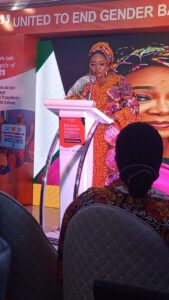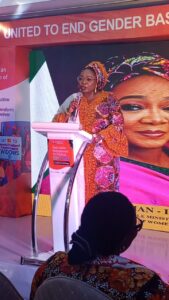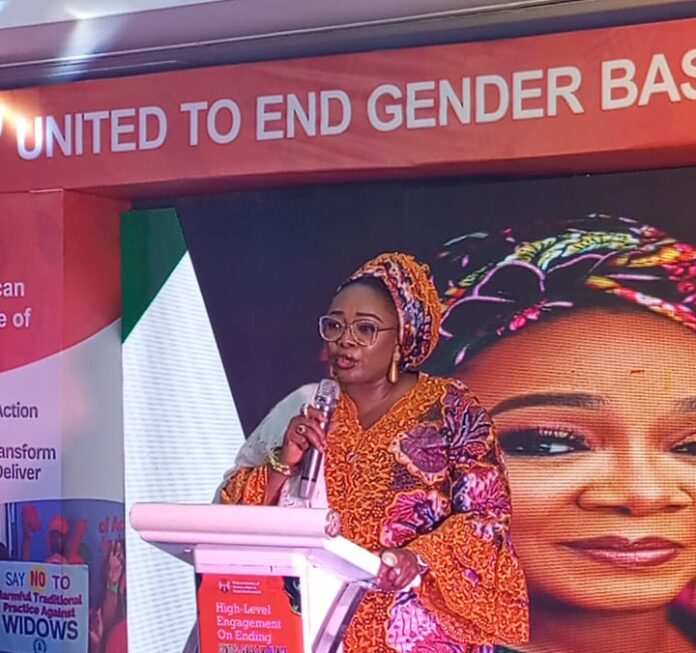

By Vera Iji
Nigeria has restated its national commitment to end gender-based violence (GBV) as the country marks the 16 Days of Activism Against GBV, under the theme, ‘UNiTE: End digital violence against all women and girls.’


Speaking at a stakeholder engagement hosted in partnership with Women for Women International (WWI), the Minister of Women Affairs, Hajiya Imaan Sulaiman-Ibrahim, raised concerns about poor coordination, inadequate funding, and gaps in service delivery for survivors.
She revealed that a national mapping of safe centres and NGOs is underway to ensure survivors receive equal and quality support across all communities. The minister also called for stronger funding to implement the Safeguard Act 774, which aims to close social protection gaps and strengthen Nigeria’s social workforce.
The minister recounted troubling findings during an unannounced visit to a shelter—survivors without medical care, children left unattended for months, and a six-year-old rape survivor who had never been seen by a doctor. She also shared harrowing cases, including a four-year-old girl raped by six men, underscoring the urgency of a coordinated national response.
Nigeria’s GBV statistics remain alarming: 28 per cent of women aged 15–49 have experienced physical violence; 70 per cent have experienced sexual violence, GBV cases rose by 149 per cent during the COVID-19 lockdown; national conviction rate remains below 5 per cent; under the Renewed Hope Agenda, Nigeria is prioritising; expansion of safe spaces; digital empowerment for women; a national GBV emergency response fund; strengthening the VAPP Act across states; increasing GBV convictions; and establishing a national data surveillance system.
Hajiya Imaan Sulaiman-Ibrahim, phasised that Nigeria loses more than $2 billion annually to GBV-related costs while the sector receives less than 0.5 per cent of the national budget.
She commended WWI for respectful partnership and reaffirmed the government’s commitment to creating a safer, more just Nigeria.
“Let this moment be defined not by statistics, but by the decisive action we take to change them,” she said.

